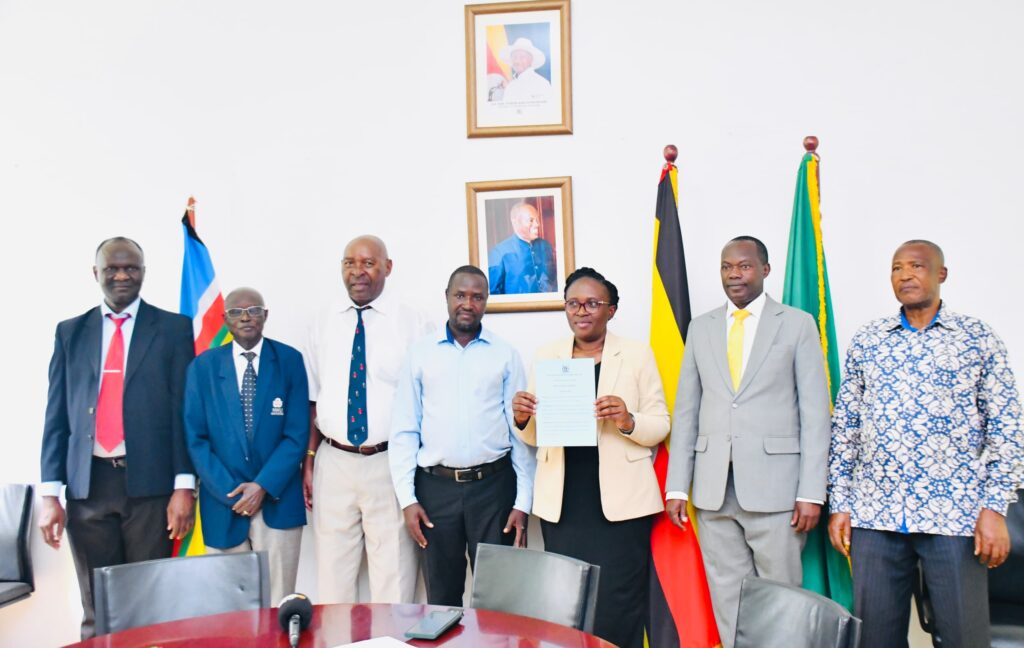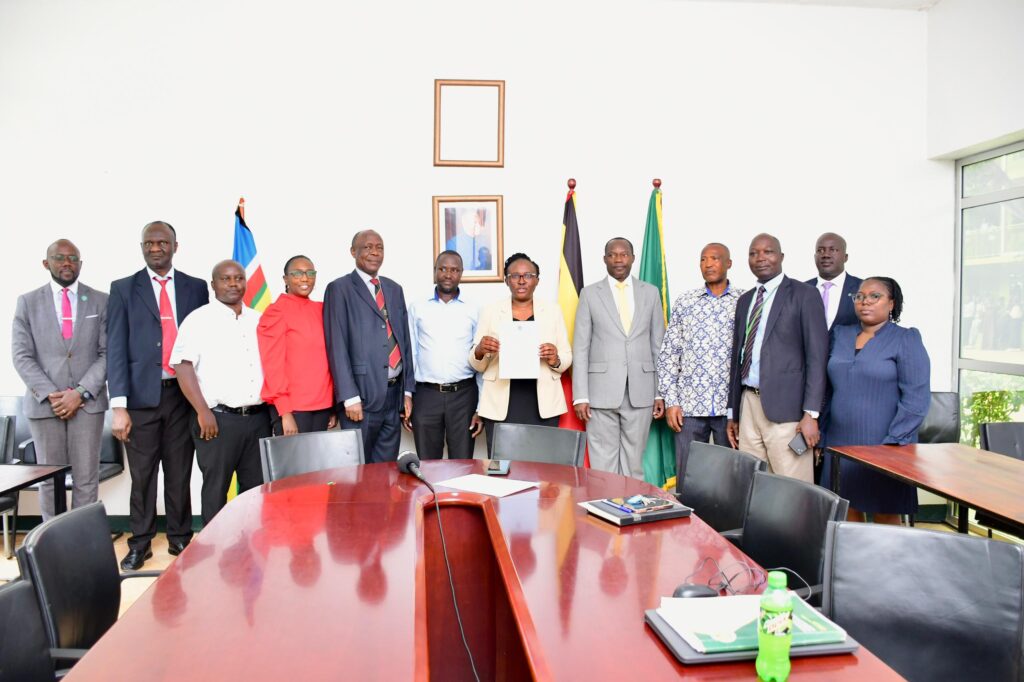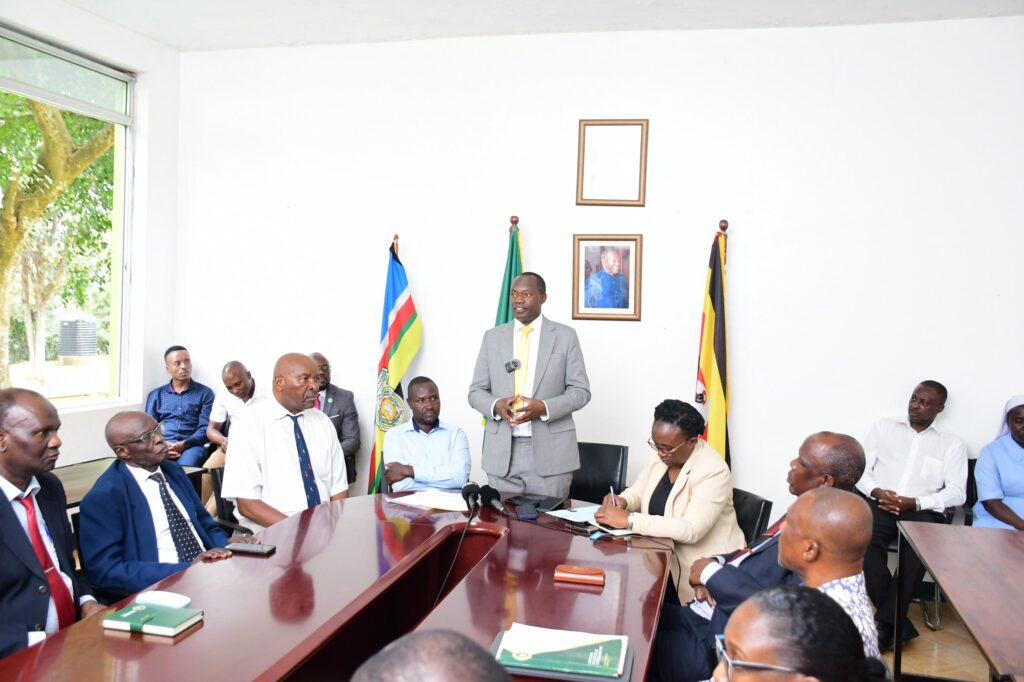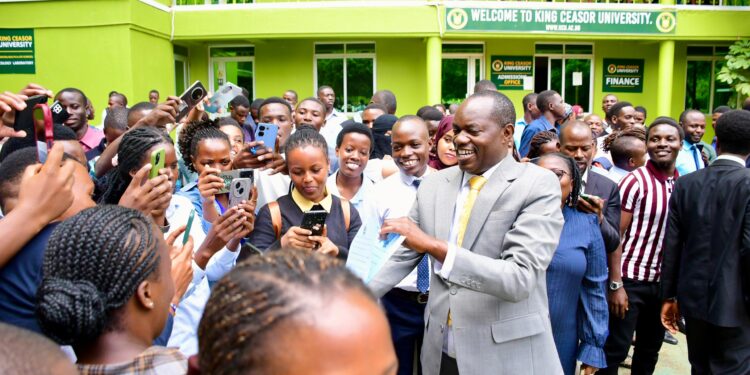King Ceasor University (KCU) has officially been granted its University Charter, securing full legal recognition to train students from around the world and confer degrees at undergraduate, master’s, PhD, postgraduate, and professorship levels.
The National Council for Higher Education (NCHE) formally presented the charter — signed by President Yoweri Museveni on July 3, 2025 — during a ceremony held at the university’s Bunga campus in Kampala.
The charter grants KCU the legal authority to operate autonomously and establish its governance structures, cementing its status as a fully recognised institution of higher learning.

For the past 17 years, KCU has focused on training professionals in a range of fields, including medicine, law, nursing, cybersecurity, entrepreneurship, and engineering, among others.
His Majesty H.E. King Ceasor T.G., the university’s proprietor and founding chancellor, reaffirmed KCU’s mission to produce graduates who are job creators and globally competitive. He underscored that the charter would significantly advance this vision.
“Being fully endorsed by the President means service to humanity because this institution is serving all students globally,” King Ceasor T.G. stated. “This Charter means service to humanity; anybody from any country in the world can come and study at King Ceasor University. This means our students can pursue postgraduate studies anywhere in the world.”

As the Honorary Consul of Vietnam to Uganda, King Ceasor T.G., also highlighted KCU’s unique approach to medical education, which emphasises training students across various specialised hospitals rather than relying on a single facility. This model is intended to offer comprehensive exposure to community health and skilled professionals.
KCU, a private university, attracts a diverse student body from countries including the USA, UK, Germany, China, Belgium, India, Switzerland, Russia, France, Italy, Brazil, Canada, Australia, Singapore, Indonesia, Thailand, Japan, South Korea, Israel, Turkey, Mexico, Sweden, Saudi Arabia, Kenya, Egypt, Sudan, Ethiopia, Congo, Tanzania, Nigeria, Palestine, Rwanda, Malawi, and many others across Africa.
The university offers a wide range of programs aimed at giving students a competitive edge in the global job market.

KCU’s vision is to be an innovation-driven institution championing socio-economic transformation through forward-thinking teaching, learning, and research.
King Ceasor T.G. first conceived the idea for the university in 2005. It obtained an interim letter of authority and later secured a provisional license from NCHE on September 26, 2011, culminating in the charter approval on July 3, 2025.
The institution has previously operated under different names: Montessori University in 2009, and St. Augustine International University from 2010 to 2019, before rebranding as King Ceasor University in 2020.

“We are the first private medical school in Kampala, and my major aim was to train health personnel (Doctors/nurses) who would provide services to humanity,” King Ceasor T.G. said.
Steven Okoth, a legal officer from NCHE, officially presented the charter to King Ceasor University’s Vice Chancellor, Dr. Charity Basaza Mulenga.
Dr. Basaza Mulenga noted that the charter would “further the quest of offering excellent education to learners.” She added, “This Charter is both an honour and a call for greater responsibility and challenges us to strengthen systems of governance and innovate in a globally changing environment.”

With this milestone, King Ceasor University joins the ranks of other chartered universities in Uganda, including Makerere University, Mbarara University of Science and Technology, Gulu University, Busitema University, and Kabale University, among others.
The charter comes less than three months after KCU graduated over 300 students on May 5, 2025.
At that graduation ceremony, Chancellor King Ceasor T.G. announced the introduction of a mandatory two-month certificate course in technology for new students, aimed at preparing them for emerging technologies such as quantum computing, artificial intelligence, the Internet of Things, virtual reality, gene editing, and more.









